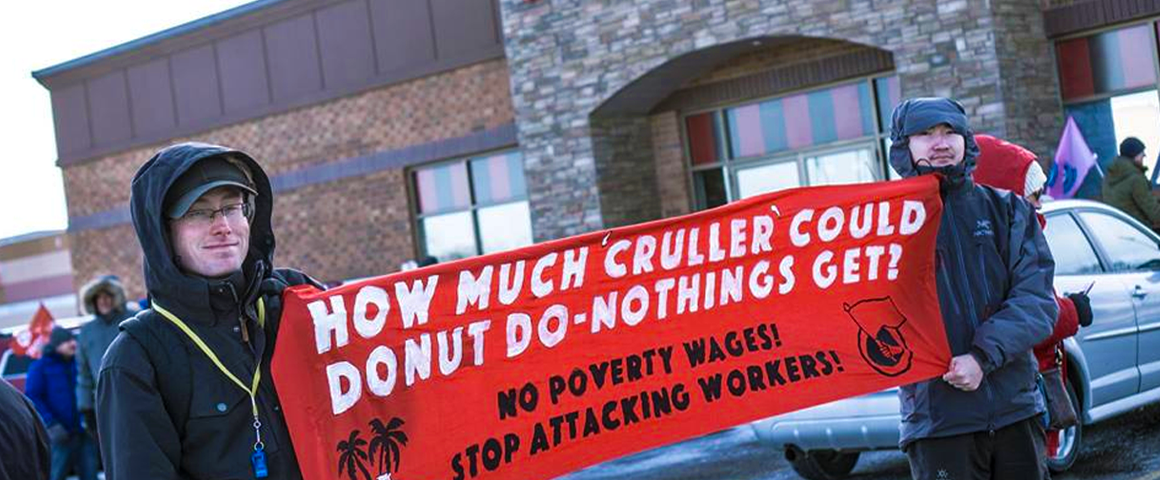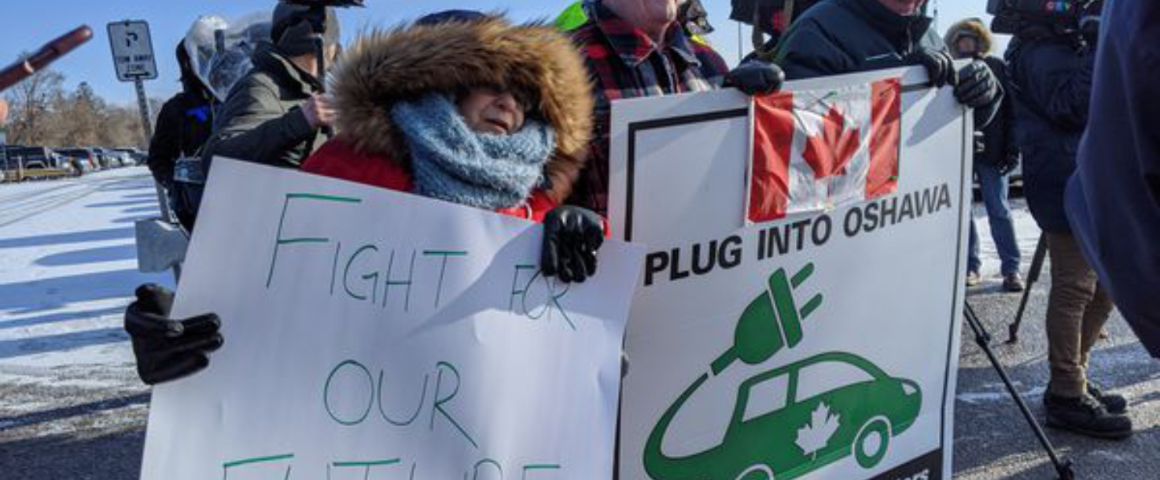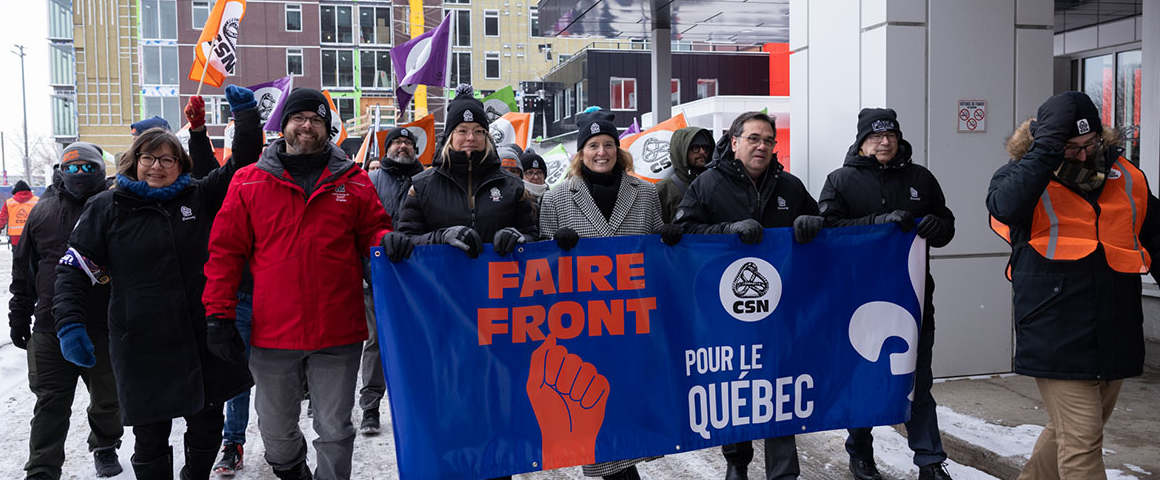The fight for higher wages for the lowest-paid sections of workers is always tough, and every victory is challenged by greedy employers. Even in provinces where campaigns to achieve a $15 minimum wage force governments to commit to increases, the resistance from bosses is strong. The new government of British Columbia pledged last summer to bring one of the lowest minimum wages in the country up to $15/hour by 2020, but then under corporate pressure set up a committee to hear submissions about the timing of such an increase. Even if that date is finally legislated, the high cost of living in BC will undermine the new rate and the struggle will continue.
The latest front in this battle is Ontario, where employers are pushing back. When Ontario’s minimum wage rose to $14 in January, a number of Tim Hortons franchises eliminated paid breaks, reduced access to basic drug and dental benefits, cut uniform and drink allowances, and even reduced hours of work. First to speak out were workers at a Cobourg store, owned by the son and daughter-in-law of the chain’s co-founder, followed by employees from other stores.
It’s true that not every Timmy’s franchise owner is wealthy, but the financial press reports that the average annual income of owners tops $200,000. During 2016 the chain generated US$3 billion in revenue for its parent company Restaurant Brands International. RBI’s CEO Daniel Schwartz pocketed $6,173,993 in salary, stock options and perks, and shareholders received US$350 million in profits.
In other words, this company can easily afford to pay a higher minimum wage. We extend our full solidarity in this crucial fight against exploitation, to all hard-working Tim Hortons employees, and to every low-wage worker in Canada.




